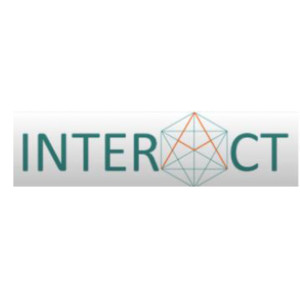 \
&
Contact us
\
&
Contact us
 \
&
Contact us
\
&
Contact us
Published on | 3 years ago
Programmes Horizon Europe SwafSA call for applications for the European Group on Ethics in Science and New Technologies (EGE) was launched by the European Commission. The EGE is an independent advisory body which was founded in 1991 and reports to the President of the European Commission and the College of Commissioners and acts under the direct responsibility of the European Commissioner for Innovation, Research, Culture, Education and Youth. Recent advice was provided on the following topics: the protection of fundamental rights in the COVID-19 pandemic, genome editing and artificial intelligence. The expert group will consist of up to 15 members. Members are appointed for a term of maximum 3 years which can be renewed a maximum of two times.
Applications should include a cover letter, curriculum vitae and standard declaration of interest and will have to be submitted via this website. The deadline for applications is 22 March 2021 (12:00 noon CET). Questions related to the application process can be addressed to EC-ETHICS-GROUP@ec.europa.eu.
All information related to the call can be found in this European Commission news article
We offer news and event updates, covering all domains and topics of Horizon Europe, Digital Europe & EDF (and occasionally, for ongoing projects, Horizon 2020).
Stay informed about what matters to you.
By signing up, you can opt in for e-mail notifications and get access to
a personalised dashboard that groups all news updates and event announcements in your domain(s).
Only for stakeholders located in Flanders
Digital, Industry & Space AI, data & cloud Deployment: Best use of technologies
The European Commission has published guidelines on prohibited artificial intelligence (AI) practices, as defined by the EU AI Act. The guidelines provide an overview of AI practices that are considered unacceptable due to their potential risks to European values and fundamental rights. The AI Act, which aims to promote innovation while... read more
Digital, Industry & Space Digital Europe Cybersecurity Defence
We would like to inform you that the Commission has adopted and published the European Defence Fund Work Programme 2025. The news announcement (with links to the documents and a factsheet) is available on DEFIS website: https://defence-industry-space.ec.europa.eu/european-defence-fund-over-eu1-billion-drive-next-generation-defence-technologies-and... read more

Professor Inez Germeys leads the Center for Contextual Psychiatry at KU Leuven, which is a large multi-disciplinary research group focusing on the interaction between the person and the environment in the development of psychopathology. She has received a European Research Council (ERC) Consolidator grant (INTERACT) and Proof of Concept grant (IMPACT). With these grants professor Germeys and her team researched a new mobile self-management therapy for patients with a psychotic disorder. The Acceptance and Commitment Therapy in Daily Life (ACT-DL) was further developed for the clinical environment. In line with that the Horizon 2020 IMMERSE project aims to thoroughly evaluate strategies, processes, and outcomes of implementing a digital mobile mental health solution.